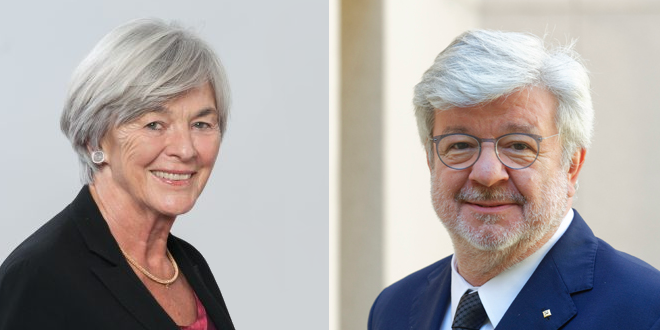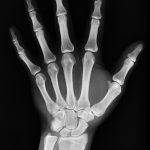Industry of the Future: How is the German-French Academy supporting European companies?
Opinion. By Hannemor Keidel, TUM Officer for Scientific Alliances with France, and Christian Roux, Executive Vice President for Research and Innovation at IMT. This article is the long version of the editorial published by Innovation Review.
[divider style=”normal” top=”20″ bottom=”20″]
[dropcap]T[/dropcap]he German-French Academy for the Industry of the Future was founded a little over two years ago and the first actions it has supported are now taking shape. Research, innovation and training are the three components that guide the work of this transnational institution created by IMT and Technische Universität München (TUM). The ambitious strategy behind this emerging project is to support European companies in the major changes driven by the digital transition.
The explosion of digital technologies offers an advantage for companies’ competitiveness. The world’s major economic areas—including Europe—have understood this. In supporting the transformation of their industries, they see the opportunity to gain technological leadership and pursue their development, a goal that cannot be reached without the use of disruptive technology and new professional skills. In this area, academic institutions are key. They offer a decisive contribution in their ability to carry out forward-looking analysis and in the technological and educational innovations they develop.
As for many strategic issues in Europe, the cooperation between France and Germany serves as a launchpad for major structural projects. IMT and Technische Universität München (TUM) have sought to further encourage this emulation process by forming a partnership with a Franco-German academy devoted to the industry of the future. Its aim is to create a cutting-edge European institution based on a new model in research, innovation and training for the industry of the future.
The programs they develop will embody the potential of the economy and industry to transition and become digitized while truly considering companies’ real needs. In practical terms, this action will take the form of transnational industrial Chairs, new initial and lifelong training opportunities for professionals, networks of incubators and technology platforms.
Not merely a vision: concrete action
Five research projects related to the scientific component were launched in June 2017. The projects can be categorized into two themes. On the one hand, HyBlockArch and Industry without Borders are studying network cooperation for the industry of the future. On the other hand, the SCHEIF, SeCIF and ASSET projects are focusing on cyber-architecture and cyber-security. The exploration of scientific fields will expand to include other themes of the future: advanced materials, additive manufacturing, energy, industrial logistics, predictive maintenance…
In the area of training, the German-French Academy has also developed initiatives. Two summer schools were held in 2017: one at EURECOM in France on human factors and human-machine interaction and another in Munich on mobility and smart roads. New summer schools for PhD students and research professors will also be offered on new themes. In addition, a wide range of training (initial, ongoing and lifelong learning) will be developed to offer solutions to companies in key sectors that are the most affected by digitization. This training will be supported by a selection of MOOCs devoted to the industry of the future.
Finally, the Academy’s third component, innovation, will be launched in the spring of 2018. IMT and TUM will offer companies joint services that will give them access to the very best in academic research and innovative systems. By allowing economic actors to access leading-edge technology platforms, IMT and TUM are seeking to foster a value within the Academy for supporting the economy and French and German manufacturers. This will be another step forward in this joint development project for the future of European industry.





Trackbacks & Pingbacks
[…] into a partnership with the Technical University of Munich (TUM) within the framework of the German-French Academy for the Industry of the Future. These researchers from France and Germany set themselves the task of devising a solution for […]
Leave a Reply
Want to join the discussion?Feel free to contribute!